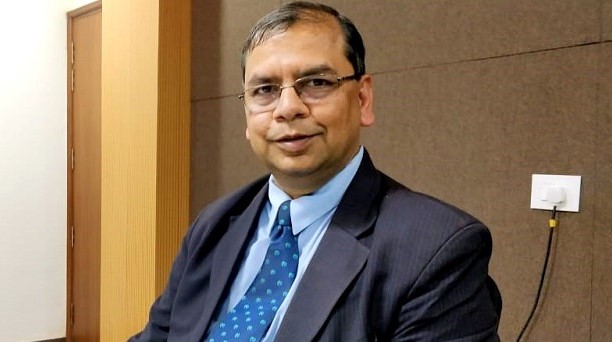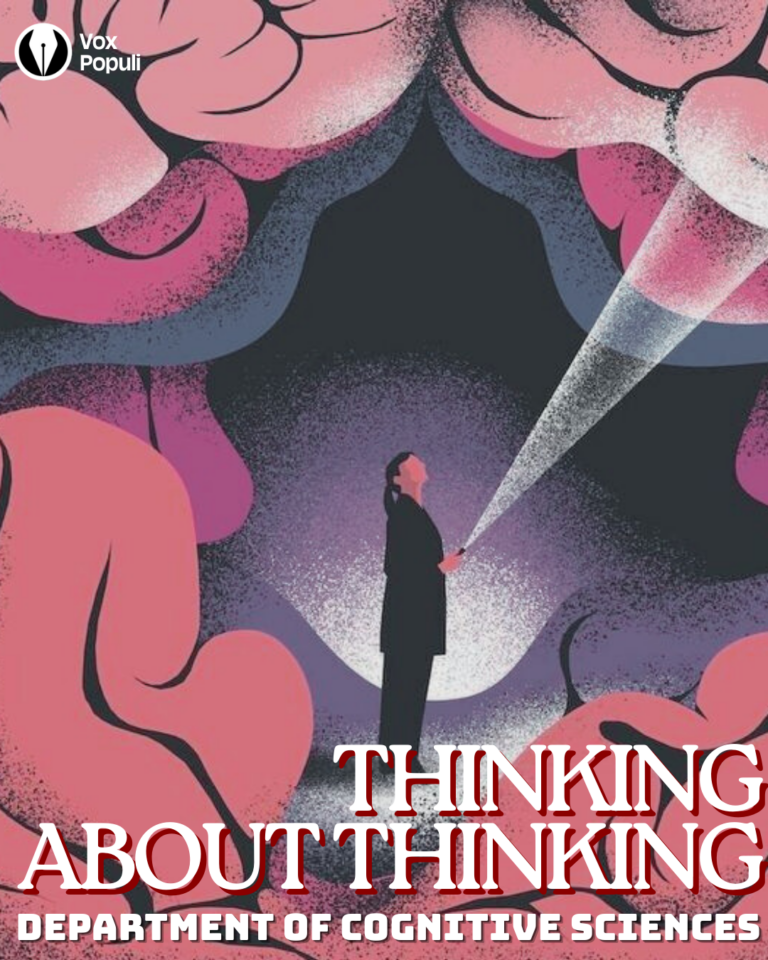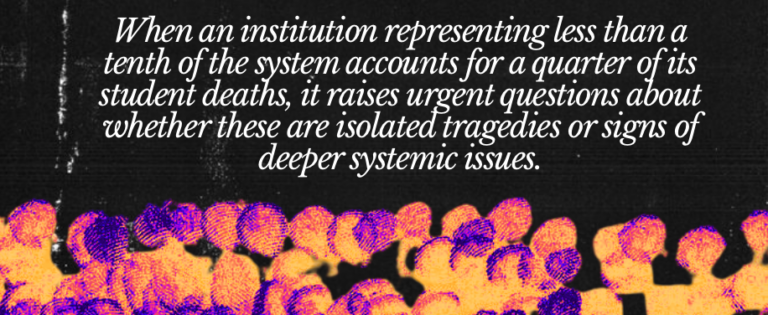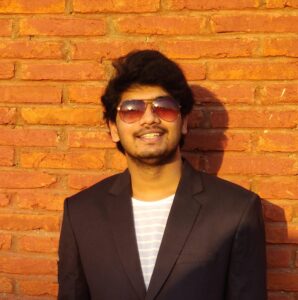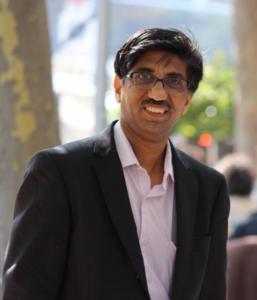Professor Dheeraj Sanghi recently retired from the Department of Computer Science Engineering at Indian Institute of Technology, Kanpur. He spared his valuable time to share some excerpts from his undergraduate days at IIT Kanpur, his experience as an Academic Administrator across engineering institutions in India in a candid interview with us.
In the following excerpts, Prof. Sanghi reminisces about his IIT Kanpur days and talks about his journey as an undergraduate in the 1980s to a successful academician and a pioneer in academic administration in the modern day.
Prof. Sanghi completed his Masters and PhD from the University of Maryland, US. After being a technical staff member at Nokia Bell Labs, he stepped into Academia, joining the CSE department as a professor. In subsequent years, he handled many positions like Dean of Academic Affairs and Chairman of the SUGC. He didn’t restrict himself to one place. He made significant contributions to academic administration across several institutes in India, being the Director of LNMIIT, Dean of Academic Affairs and Dean of External Relations at IIIT Delhi, visiting faculty at IIT Bombay, Director of Punjab Engineering College and Guest faculty at IIT Gandhinagar. Currently, Prof. Sanghi is the VC designate at JK Lakshmipat University, Jaipur.
Q. How were your days as an undergraduate student at IITK back in the ‘80s?
→ The four years of my B. Tech at IITK was a lot of fun. I knew that being in Computer Science meant that there would be fervent competition in academics, but that did not stop me from participating in any of the activities. I remember being part of every committee one could think of, and I was the one present everywhere money matters were to be handled. I was trusted to handle the money, and I was good with people. Eventually, every purchase for the sports committee, the cultural committee and the presidential committee went through my purview. I was part of the Hockey team as well, and even though I never became a Senator, I am sure that I had attended more Senate meetings than any of the elected Senators. All in all, I had a great time during my undergraduate days at IITK.
Q. What were the key factors that motivated you to pursue a career in academia?
→ Well, it’s difficult to say. Towards the end of my B.Tech, I was very sure that I didn’t want to get into academia, and after my third year, I had the impression that I’d complete my MBA next and then have my startup, and back then, startups weren’t the technology-based ones, they were the ones which meant setting up your own shops and businesses. And I just knew I wanted to be my boss. And now that I think of it, I had all the wrong ideas about pursuing an MBA. I had decided in my head that my next destination was IIM Ahmedabad and that post my MBA, I’d have my shop, but one day, my very dear batchmates, after coming to know of my plans, asked me if I was an idiot?! And they convinced me that someone as bright as me shouldn’t settle back in India but should pursue a second degree in the US. While I had dismissed the idea because I knew I couldn’t afford the entire financial burden it’d entail because I couldn’t even have borne the fees to appear for GRE and other exams. However, my friends supported me then and gave me three drafts of 110 bucks each to help me sit for the exams, and I did sit for the exams and finally applied to foreign schools and got admitted to the University of Maryland.
Even after going to the US, initial plan was to complete my MS and then come back to India, complete an MBA from IIM Ahmedabad, and open up my shop. And I was then told that if I wanted to do an MBA, why not pursue it in the US itself, and then I appeared for the GMAT. I aced the exam with a complete score of 800 without even preparing for it. I had topped the exam globally, and post this, when I started getting admission calls from Universities, my then supervisor challenged me, saying that I was only pursuing an MBA because I couldn’t do a PhD. I remember I took the challenge head-on and went on to complete a PhD as well.
Post my MS, I came back to India, and I had worked on Networking and had this zeal to transform India and work for the recent projects which had just started. I remember applying for a position to work in the field. Still, the coordinators everywhere at IITD, IITB and IITK gave me the honest response that the project employees are mistreated, and even though I asked them that if they knew employees were mistreated, why would they continue with it, but they just told me that the system doesn’t change and that if I wanted to work on it, then I should complete my PhD and then come back and join the project.
Post my PhD, I had no clue what kind of job I wanted and if I wanted to stay in the US anymore or come back to India. My supervisor told me to take four weeks and visit India to explore the job opportunities. So I remember going to IITs and applying for the role as a professor and to corporate firms as well, and the response I got was very contrasting. Every corporate firm told me that they’d only consider me for the job after I had completely shifted back to India completely, and that was understandable to an extent since many people from the US would prefer to stay there. However, all the academic institutions told me that they’d consider me whenever they’d have their next selection committee meeting. With a couple of letters of appointment in hand, I knew that I would pursue Academics. And to be honest, I am thankful that I got into academics because this is a great job, and every year, we meet so many young and enthusiastic people with so much energy.
Q.Since your days as an undergraduate at IITK in the ‘80s, how do you think the perception of IITK and IITs in general changed over four decades?
→ I think the image of IITs has improved drastically in the last few decades. When I got selected for IIT, My father wasn’t certain if joining the institute was worth it because the fees here were more than double what it was at Delhi College of Engineering. And I remember having to convince my father that IIT was the better place. Back then, people did not realise the difference between the IITs and other colleges, and many people with ranks in the thousands would choose Delhi College of Engineering over IITs. Today, students with not so good ranks would prefer IITs over any other colleges, and the reputation of IITs has increased severalfold.
Q. There was this shift from the AIEEE regime to JEE Mains and Advanced exam. And today, four JEE mains exams are conducted before the JEE Advanced. Do you think this process has changed the dynamic of admissions in engineering institutions in India? And is it a plus to have this system, or are there any cons to it as well?
→ There was a discussion during the shift from the AIEEE system that there was a need to evaluate students on things other than Physics, Chemistry and Math. Therefore, it was thought that the two stages of the exams would mean that the initial exam was an aptitude test, whatever that entailed and then the second exam to test the Science and Math subjects. It was discussed that the colleges could use a combination of scores in the two tests to define their criteria for admissions. However, there was a lot of opposition from the IIT Council to having an exam that would be common to admission to IITs and non-IITs. Now, the first exam serves as a prerequisite to the second exam, and the first exam is the one that is responsible for ranking students going into the non-IITs. Hence, this exam too had to have Physics, Chemistry and Math and not just aptitude. One couldn’t have had rankings solely based on Aptitude and English scores, and hence, the entire idea of the Aptitude tests was scrapped.
I think we should have more exams for admissions, in fact, multiple exams. The whole idea of having just one exam or as few exams as possible is a braindead idea. We should have multiple exams and multiple parameters to define admission criteria instead of just one single exam. The AIEEE to JEE shift hasn’t changed many things, and it hasn’t made any difference to the kind of students we get, but I think we could have used the opportunity to have more talented people join the IITs.
Q. How was your experience as the Dean of Academic Affairs at IITK?
→ The work of DOAA is purely an administrative job, and the work is to implement the academic decisions taken. I, in general, would not have enjoyed the job, as I wanted to have some influence on the academics. Later, I realised that I definitely had some influence in the decision making, in the sense that, in the Deans’ meeting, one can say things and ask the Senate to consider it. In the name of the implementation, you can always sneak in a few things, for example, at the time of pre-registration, you will be given the timetable for the exams so that a student can choose their courses properly if the endsems of two courses are clashing even though the schedule is not. So, these kinds of things can be done. I thought of it as essential and failed to implement the students’ feedback for the faculty. Whenever we take a survey, it is expected that the survey results will be shared with the people who filled it, to whomsoever I talked, they said that if someone asks for this information, then under RTI, we will have to share it and that is the problem. The RTI act also states that if you think that some information is sharable, you can share it before someone asks for it, on your website or any other place. It was clear that this information will be of interest to many others and thus should be shared, and I did share it one semester, and we had to take it down within 48 hours as there was so much opposition. Otherwise, I was pleased with this position and had a remarkable tenure.
Q. It is common knowledge now that the number of students entering IITs is increasing. Is it true that the quality of students graduating from IITs has deteriorated over the years? If so, what are the possible reasons?
→ I don’t think the quality of graduating students has gone down. What has changed is the mindset of the children. For instance, the percentage of students in our times who would take up a course solely because it is interesting was far higher than it is now. Students will think about which course should be taken to get a better job, a better CPI. And the whole focus on the placement is problematic, and that is in direct line with the coaching culture. When you have lived 2-3 years of life with such a narrow goal, it becomes hard to live if you don’t have a specific aim after achieving that goal. Thus, the first-year students need to set up a goal very fast, but they hardly know anything, their potential, their interests and then they set up the goal as “let me get a job at the end of these four years”. So, they start questioning if a particular course would help me get a job in this company or that place. These students can change the world, and if they have a goal of getting a job, that creates problems.
Q. After your experience at IIT Gandhinagar, How do you see the new IITs fare in comparison to the older IITs and do you see a difference in the educational systems of these institutes?
→ In general, I think the new IITs are trying to replicate the old IITs, IIT Gandhinagar being slightly different. However, most of the new IITs have the old IITs as their mentor, and thus they want to become the same. Maybe they have more flexibility for the students and as such, but if you compare in the last 15-20 years, the freedom has depleted a lot.
Q. How do you see the current online mode of teaching, and do you think it has any significant benefit/harm compared to the offline mode of education?
→ In the current pandemic time, we have no option but to go online because we cannot bring many students together. I think that IIT Kanpur could have made better decisions, and decisions made were probably the most irrational ones among the IIT system. Going forward, I believe the tier-1 universities will go back to the classroom system, but the tier-2 will keep the online ongoing, maybe. Take, for instance, person X is teaching in the classroom and the same person conducting online lectures, most people will prefer in-class education. However, if you ask the normal average faculty teaching in class and the best teacher in the world teaching online, the answer is different. So, my take is that there will be a mix of online and offline education in the post-pandemic times.
Q. What plans do you have now, post your retirement from IITK?
→ I have joined a private institution in Jaipur, and I plan to work on the things that I have thought of for the past 15-20 years and implement them, which was tricky in a government setup. I was in a private institution for two years, and those were the best two years of my life. Hopefully, this will be the last job that I take on. Let’s see what happens ahead.
Q. Any advice that you’d have for students at IITK and in engineering institutions across India?
→ Somehow, the students have this mindset that the only thing that matters is CGPA and their personality, but the learning doesn’t matter. Skills don’t matter. This is troublesome. This is why we see students having fun in their first and second years and then a sudden shock in the third year of not getting internships. What matters in life is the skills and education you obtain and learn. Your skills are important. You have plenty of time to gain that knowledge, play games, have fun, and be culturally involved. So, you can plan to change the world. You don’t have to worry about getting a job. Do hard work sincerely, and you will get the results.
Interview and Transcription – Jiya Yadav, Lavanya Ingle
Editing – Aryan Pandeya




